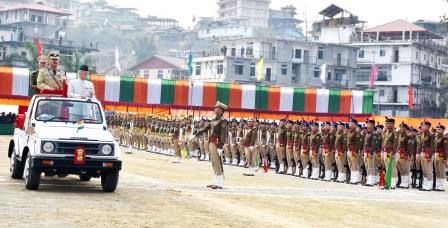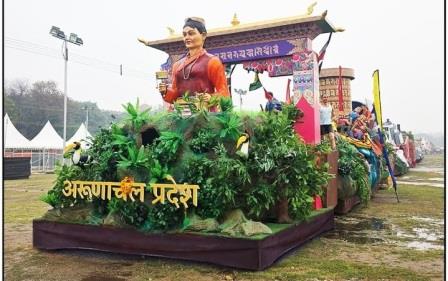-
 Arunachal celebrates 77th Republic Day with fervour
Arunachal celebrates 77th Republic Day with fervour
-
‘Local Food Contest’ marks National Tourism Day
-
AFTF reiterates scrapping of 80:20 recruitment ratio in Arunachal Pradesh
-
Governor, First Lady host ‘At Home’ reception
-
Papum Pare DA holds interaction with newly elected ZPMs
-
Indian Army conducts ‘Know Your Army’ campaign
-
 Arunachal tableau on R-Day spotlights state’s emergence as Adventure Capital…
Arunachal tableau on R-Day spotlights state’s emergence as Adventure Capital…
-
Etalin marks National Voters’ Day, encourages youth participation in democracy
-
Sona reviews PMGSY, VVP projects in Itanagar Circle
-
Lok Bhavan celebrates UP Diwas
Prime Minister Narendra Modi who arrived in Tokyo will be having his 12th meeting with his Japanese counterpart Shinzo Abe by the time this newspaper goes to print. He first visited Japan as Prime Minister in September 2014. Japan and Russia are the only two countries with which India holds an annual bilateral summit and has no ideological or strategic differences. Ever since they institutionalised annual summit-level meetings in 2006, India and Japan have held a closely aligned world-view. Prime Minister Modi and Shinzo Abe are expected to take stock of all the challenges they face, notably with regard to the US and China. President Donald Trump’s recent actions on trade tariffs, sanctions against Iran and Russia, as well as the US’s exit from several multilateral and security regimes are impacting both countries in different ways. For India, the impact is more direct, as the economy has been hurt by new American tariffs, review of its GSP (trading) status, and restrictions on visas for professionals.
Moreover, possible US sanctions over Indian engagement with Iran as well as defence purchases from Russia pose a looming challenge. For Japan too, US trade tariffs are a concern and Washington’s exit from the Trans-Pacific Partnership is corralling Southeast Asian countries into a free trade regime under Chinese domination. In addition, the US’s on-again, off-again nuclear negotiations with North Korea are keeping Tokyo on tenterhooks. India and Japan must closely cooperate on how to manage these challenges from the US while maintaining their growing security ties with Washington, as members of the trilateral and quadrilateral formations in the Indo-Pacific.
The other common concern is managing an increasingly influential China. Abe will be meeting Modi a day after he returned from a visit to Beijing, the first by a Japanese Prime Minister in seven years. Modi has re-engaged Beijing through multiple meetings with President Xi Jinping this year. The Prime Ministers are bound to compare notes on the way forward with their common neighbour, especially on building and financing alternatives to China’s Belt and Road projects for countries along the “Asia-Africa growth corridor”.

Kenter Joya Riba
(Managing Editor)She is a graduate in Science with post graduation in Sociology from University of Pune. She has been in the media industry for nearly a decade. Before turning to print business, she has been associated with radio and television.
Email: kenterjoyaz@easternsentinel.in / editoreasternsentinel@gmail.com
Phone: 0360-2212313

